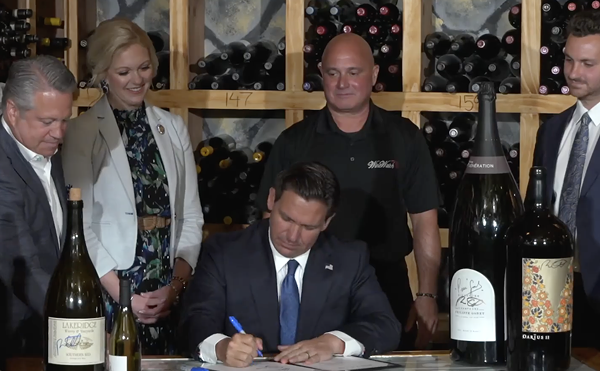Is this issue bigger than just where you shop?
Ferenc: This local movement is so much bigger than just what we're doing. It's attached to so many different things. That's why it's gaining momentum right now.
Jimenez: So much of this is about community. ... Again, when you start looking into these matters, there is so much to back up what we've anecdotally believed for a while. Studies that show that communities with strong locally owned independent businesses have less juvenile crime, have higher voting rates and some other kinds of values that make our community where we want to live. It all goes hand in hand. Do I want to have human contact? Do I want to have a conversation with someone who I'm doing business with, or do I want to listen to a script? It's really about quality of life in so many ways.
It reminds me — I'm sorry, it's all about books with me — of a book, The Last Child in the Woods, by Richard Louv. This great book brings together all the kind of studies about how important it is that we have contact with nature. Just thinking of what we lose when we lose natural places, when we have too much sprawl and when we lose human contact with each other. It's one thing to use the Internet for its wonderful advantages, but when all we do is sit at a computer all day, we're really losing our humanness. Whether you shop at a chain or shop at an independent, you might think this doesn't have any relationship to that. But I think to those of us who are really involved and passionate about it, that's the point: it does have the relationship and we do see that connection. There's room in the world for national chains and there's room in the world for us. And I always try to suggest that people spend consciously. Just know the ramifications, know the choices you're making. As we say: Little choices add up to big dollars. If we just think about our choices when we're spending, it can make a huge difference to our community and our quality of life.
How does shopping at independents bring economic benefits to a community?
Jimenez: There have been a variety of studies — Austin, Chicago, Santa Cruz, Phoenix, Vermont and Maine — and they all come to about the same conclusions. One is that as much as 80 percent of the money that is spent in a national chain leaves town in the overnight deposit. Other studies have repeatably shown that every dollar spent in a locally owned independent circulates in the community an average of three times more than a dollar spent in a chain. Because of the repeated transactions and repeated collection of sales tax in our state, it's up to five times as much revenue for public projects, for first responders, for schools, for libraries, for our roads. When we spend our dollars, we're making choices about the quality of our children's education, about whether there's a park to go hang out in, about the cleanliness of our water and about all those other things that add up to our quality of life. ...
When we opened Inkwood in 1991, we consciously chose to buy our fixtures from a local cabinetmaker. We could've had them imported from a lovely firm in Massachusetts, but we wanted our money to stay locally. When you shop at a national chain, their accountants are in New York or some other state. When I go to a local dentist, I'm spending money here; when the accountant who does the bookkeeping for a national chain goes to the dentist, it's not in Tampa. It just adds up. It adds up everyday and it adds up to huge, huge amounts toward our local economy.
How do independent businesses fit into issues like sprawl and sustainability?
Jimenez: I think independent businesses are naturally created in neighborhoods, as opposed to a huge block of empty land turned into a monstrous parking lot. I think they tend to be in more walkable areas, so that is one thing taking care of independent businesses can help a city to nurture and keep. In terms of sustainability, independent businesses tend to be more "green" and more conscious of [those issues]. I don't think you could point to a community where local independents contributed to sprawl. I just don't even think that's possible. And, of course, there are incidents all over where sprawl has been contributed to by big-box chain stores. So if you don't like sprawl, support your local independent businesses.















